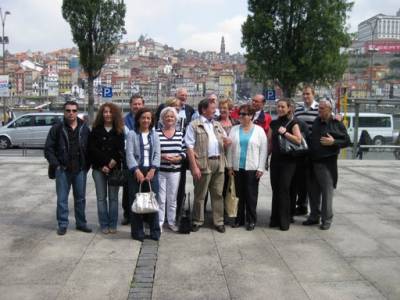Report on the Modernisation of Customs
EP understands the needs of a competative Europe
OCEAN Chairman Alfredo Tosato welcomed the report of the European Parliament on the Modernsiation of Customs and congratulated his follow country man Mr. Salvini MEP on on such a great piece of work. He added: "The European Parliament understands the needs of European business, we need less red tape and a strong customs union which is not reduced by different national laws. If we as European business agree to invest in security and compliance, in return we need to recover some of this investment by gaining more trust and self-management by customs authorities. In other words, AEOs should have no guarantees and benefit from tangible and financial benefits"
2011/2083(INI) - 01/12/2011 Text adopted by Parliament, single reading
Summary
The European Parliament adopted a resolution on the modernisation of customs services.
Members consider that the Modernised Customs Code which was adopted in 2008 was highly ambitious in terms of deadlines, and takes the view that the new proposal must truly aim to enhance the current situation, bringing clear added value for EU operators and SMEs in particular.
Customs strategy: the resolution stresses the fact that a well functioning customs policy plays a key role in protecting intellectual property rights, combating the illegal entry of goods and counterfeit products into the single market, and therefore enhances safety and security for European consumers.
Parliament calls on the Member States to commit fully to the process of modernisation of customs and especially to the uniform application of EU customs legislation. It insists, moreover, that the Commission, without delay, takes all necessary actions to ensure a seamless and harmonised application of the EU customs legislation throughout the EU. It believes there is a need for modernisation measures such as simpler customs legislation and interoperable computerised customs systems which will help facilitate commercial practices,
It calls for the fight against breaches of customs regulations and against threats posed by smuggling, organised crime, corruption, terrorism and other criminal acts to be intensified, paying particular attention to implementing the recommendations of the World Customs Organization on risk management, the protection and security of legal trade, development partnerships with business in the area of customs automation, on the fight against corruption, the introduction of the single window principle and the exchange of information and knowledge between customs administrations.
It considers, furthermore, that, as customs are entrusted with more and more responsibilities, the Member States should match these with adequate resources; considers that allocation of appropriate financial resources in line with the budgetary frameworks for customs-related procedures and processes, in particular the development of IT systems, is essential for achieving the much needed modernisation of customs.
Centralised customs clearance and harmonisation: Parliament reiterates its call on the Commission and the Member States to step up harmonisation of customs control systems on the one hand, and sanctions on the other hand. It calls on the Member States to commit themselves fully to the concept of centralised clearance, as only truly harmonised customs rules, information exchange systems and data formats can ensure its successful implementation.
Authorised economic operator (AEO) status: Parliament calls on the Commission and the Member States to improve service quality in relation to economic operators and other persons and to reduce the administrative burdens on them. It supports the Commission's efforts to encourage traders across the EU to apply for AEO status.
Simplifications and exceptions: Parliament welcomes the Commission's intention to introduce procedural simplifications in the area of imports and exports. It calls on the Commission in future, in the context of ‘local clearance procedures’, to dispense with individual notifications and to provide for goods to be released without the involvement of the customs authorities, in order to ensure that procedures operate smoothly, particularly in the case of just-in-time consignments.
Non-preferential origin: Parliament calls on the Commission to maintain the principle that the non-preferential origin of goods is determined according to the place where their last substantial economically justified processing occurred. It stresses that, if additional origin rules are established, this should be done in such a way as to avoid unnecessary administrative burdens for businesses, and should take into account the importance of facilitating international trade. It stresses, at the same time, that export certificates on non-preferential origin issued by the relevant authorities of third countries must also in future be recognised by the EU.
Financial interests: Parliament underlines that the proceeds from customs duties are an important part of the EU's traditional own resources, representing, together with sugar levies, EUR 16 777 100 000 for the year 2011. It stresses that efficient prevention of irregularities and fraud in the customs field, through proper controls, not only secures the protection of the EU's financial interests but also has important consequences for the internal market.
It therefore calls for closer cooperation, and the active exchange of information and proven procedures, with the customs authorities of the EU's neighbouring countries with regard to customs modernisation and efforts to combat smuggling and corruption in the customs system.
Lastly, Parliament encourages the Commission to adhere fully to the spirit of the Framework Agreement on relations between the European Parliament and the European Commission in terms of improved cooperation and flow of information, especially in the context of Commission meetings with national experts.




